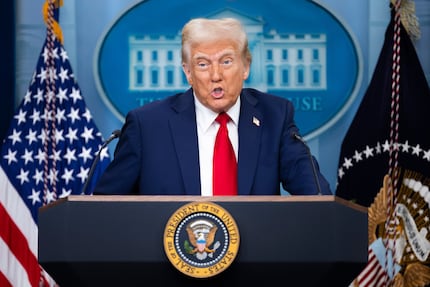
Background information
Meta under pressure – Part 2: how Instagram lost its way
by Samuel Buchmann

A landmark court case against Meta has been ongoing for two weeks now, trying to decide whether Mark Zuckerberg created a monopoly using unfair methods. The trial is explosive, both legally and politically.
Mark Zuckerberg is fighting for his empire in court. The US Federal Trade Commission (FTC) wants to break up his company. It alleges that Meta created a social media monopoly by abusing its market power. As punishment, it demands the tech giant sell off Instagram and WhatsApp.
The fact that the trial is taking place at all is a defeat for Zuckerberg. For months, he’s been cosying up to Donald Trump – no doubt with the aim of getting him to make the lawsuit disappear. But Zuckerberg’s advances seem to have met with little approval from the president so far. In the end, however, this might not matter after all. The case is built on shaky foundations.
The FTC’s suit revolves around Meta’s acquisitions of Instagram (2012) and WhatsApp (2014). In both cases, Zuckerberg’s company, still called Facebook at the time, is said to have deliberately prevented competition on the free market. It’s the reason why Meta still has a monopoly today – to the detriment of consumers. To solve this, the antitrust authority is demanding Instagram and Meta be sold off.
Achieving a monopoly position with a good product isn’t fundamentally illegal in the USA. However, once a company dominates a market sector, stricter rules apply to it. The so-called Sherman Act prohibits the prevention of competition through unfair means – exactly what the FTC is accusing Meta of.
Although the Federal Trade Commission theoretically operates independently of the US government, the latter does appoint a chairman. Shortly after taking office, President Donald Trump dismissed the previous head, Lina Khan, and appointed Andrew Ferguson. This way, he can exert de facto pressure on the authorities to prosecute certain cases more vigorously or drop them.
It’s why Zuckerberg’s tried to ensnare the president in recent months. It began when Trump’s election seemed virtually certain after the assassination attempt. Although Zuckerberg never made an explicit voting recommendation, he did describe Trump as a «badass» in an interview. After the election, he donated money for Trump’s inauguration and visited him at Mar-a-Lago.
Meta also abolished its fact-checking team – a U-turn to please Trump. Just remember 2020, when Facebook and Instagram took decisive action against misinformation. They also deleted posts by Trump in which he claimed that children were immune to the coronavirus. After the storming of the Capitol in January 2021, Meta even blocked the president’s account, claiming he’d called for violence.
Since then, Trump hasn’t been on good terms with Zuckerberg. The former heavily criticised the latter, claiming Meta had influenced the 2020 election. In one book, he even threatened the Meta CEO with a life sentence (article in German). It seems Trump’s immune to Zuckerberg’s charm offensive. In any case, he hasn’t yet intervened in the case against Meta.
The suit was originally filed under Donald Trump in December 2020. In June 2021, a court dismissed the indictment since it had been too poorly drafted, providing no evidence of Meta’s alleged monopoly – a blow against then-FTC Chairman Joseph Simons. However, the court left the door open. It only dismissed the indictment, not the case itself.
Joe Biden’s FTC Chairwoman Lina Khan revised the indictment, refiling the case in August 2021. Successfully this time. Meta filed two requests for the case to be dismissed again and were rejected both times. Meta’s lawyers did manage to delay the trial until after Trump’s election. But even new FTC Chairman Andrew Ferguson knows no mercy. On 14 April 2025, the trial began and Mark Zuckerberg had to appear in the District Court of Columbia.
The FTC claims Meta specifically bought Instagram and WhatsApp to prevent competition, indirectly harming consumers as a result. Without competition, Meta isn’t forced to make its services as good as possible.
It is better to buy than to compete
The FTC is presenting numerous documents to support the first part of its allegation. These include e-mails from Mark Zuckerberg in which he reveals his business strategy. For example, the Meta CEO wrote: «It is better to buy than to compete.» And with regard to the Instagram takeover: «What we’re really buying is time.»
The second part of the claim is more difficult to prove. The FTC needs to conjure a believable imaginary world in which Facebook wouldn’t have bought these other platforms. According to the commission, there’d be more and better social media services in that world than there are today. To make this argument work in an era of TikTok, X, and YouTube Shorts, the FTC defines the market as «personal social networks». In the eyes of the commission, only Facebook, Instagram, WhatsApp, Snapchat and MeWe operate there.
Zuckerberg and his lawyers are arguing that Instagram and WhatsApp have only become this successful with Meta’s help. Internal documents show that Instagram only had ten million users at the time of its takeover. This number has now grown to two billion. Meta claims there was no harm done to consumers. On the contrary, they say the platforms have actually improved as a result of the takeover.

Meta is also defending itself against the monopoly accusation. According to its lawyers, Facebook and Instagram have to assert themselves in a contested market that also includes TikTok, X, YouTube and iMessage. As proof, they presented internal statistics, among other things. When TikTok temporarily went offline in the US in January, the number of users on Facebook and Instagram shot up.
Most experts give the lawsuit a low chance of success. It seems plausible that Mark Zuckerberg deliberately wanted to prevent competition. However, the FTC’s market definition is far-fetched. It’s hard to argue that TikTok, X and YouTube are not direct competitors of Facebook and Instagram today – which completely tears down the monopoly accusation. Moreover, any damage to consumers due to a lack of competition can only be argued hypothetically.
Meta’s true market power lies in its network. If you use one product, Mark Zuckerberg will relentlessly shove all the others down your throat. It worked for Instagram when it was taken over by Facebook. Today, Meta is repeating this principle with the short message service Threads, which also pushes unsolicited notifications on Instagram. Then there’s the in-house chatbot Llama, which is being fed with accumulated personal content from all platforms. Regardless, none of this is the subject of the lawsuit.
Another circumstance that undermines the FTC’s credibility? Precisely the FTC approved the takeovers of Instagram and WhatsApp in 2012 and 2014. It seems hypocritical that the same authority is moaning about it ten years later. A judgment against Meta would fundamentally call into question the legal certainty of such takeovers.
The bottom line is, the FTC has a bad hand from a current perspective. In the end, however, the decision could also depend on political factors. If Mark Zuckerberg wins Donald Trump’s favour, the case will probably quickly disappear into thin air. If the FTC succeeds in portraying Meta’s monopoly as a threat to free speech, the Republican president will let the tech company stew in court.

The trial before the District Court of Columbia will take several more weeks. A verdict isn’t expected until the summer. In addition to Mark Zuckerberg, Meta’s former COO Sheryl Sandberg and Instagram co-founder Kevin Syström have already testified in court. Soon, WhatsApp co-founder Brian Acton will also have his say.
If the FTC wins the case, the court will then have to decide on consequences. A similar remedies trial is beginning this week against Google and its search engine monopoly, for example. Meta could be forced to sell Instagram and WhatsApp. However, it’s likely that any losing party will appeal the ruling. The case is therefore likely to drag on for years.
My fingerprint often changes so drastically that my MacBook doesn't recognise it anymore. The reason? If I'm not clinging to a monitor or camera, I'm probably clinging to a rockface by the tips of my fingers.
Interesting facts about products, behind-the-scenes looks at manufacturers and deep-dives on interesting people.
Show all
Background information
by Samuel Buchmann

Background information
by Dominik Bärlocher

Background information
by Dominik Bärlocher